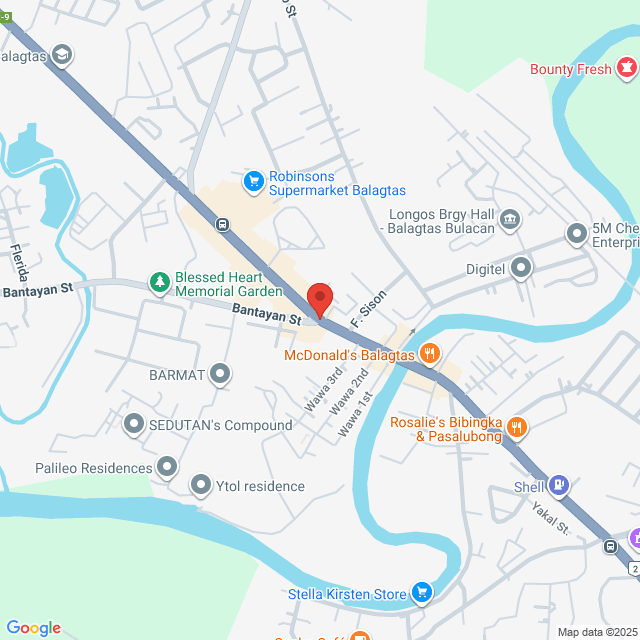Refrigeration and Machine Technician
Hexagon Group of Companies
Job Description
Installation and Commissioning
- Assist in the installation and commissioning of new refrigeration equipment and systems, ensuring proper setup, calibration, and testing.
- Connect power, water, and refrigerant lines according to schematics and safety standards.
Preventive and Corrective Maintenance
- Execute comprehensive preventive maintenance (PM) programs for all refrigeration units, including compressors, condensers, evaporators, cooling towers, pumps, fans, and associated controls.
- Perform routine inspections, cleaning, lubrication, and adjustment of refrigeration components.
- Monitor system performance parameters (e.g., temperatures, pressures, refrigerant levels, oil levels) and document readings.
- Conduct precise troubleshooting to diagnose mechanical, electrical, and control issues in refrigeration systems.
- Perform corrective repairs on faulty equipment, including component replacement (e.g., compressors, motors, valves, sensors, electrical boards).
- Recover, reclaim, and charge refrigerants (e.g., Ammonia, Freon) safely and in compliance with environmental regulations.
- Identify and repair refrigerant leaks using appropriate detection methods.
Plumbing and Drainage Works
- Maintain and repair water lines, drainage systems, condensate pumps, and plumbing fixtures related to refrigeration units.
- Ensure proper drainage to prevent water buildup, icing, or contamination in cold storage areas.
- Address plumbing-related service requests to avoid operational disruptions.
System Monitoring and Optimization
- Continuously monitor the performance of all refrigeration systems through Building Management Systems (BMS) or Supervisory Control and Data Acquisition (SCADA) systems, if applicable.
- Optimize system settings for energy efficiency while maintaining required temperatures and humidity levels.
- Analyze operational data to identify trends, potential issues, and areas for improvement.
Emergency Response
- Respond rapidly to refrigeration system alarms and breakdowns, including during off-hours, to minimize product spoilage and operational disruption.
- Execute emergency repair procedures safely and effectively.
- Be proficient in emergency protocols for refrigerant leaks, (e.g., wearing SCBA, emergency shut-down procedures).
Safety and Compliance
- Adhere strictly to all safety regulations, company policies, and industry best practices, particularly those related to handling refrigerants (Ammonia), electrical safety (LOTO), working at heights, and confined spaces.
- Ensure proper use and maintenance of Personal Protective Equipment (PPE), including specialized gear for refrigerant handling.
- Maintain accurate logs of refrigerant usage, recovery, and disposal in compliance with DENR regulations.
- Participate in safety drills and contribute to a strong safety culture.
Documentation and Reporting
- Accurately document all maintenance activities, repairs, refrigerant handling logs, and system readings.
- Prepare daily, weekly, and monthly maintenance reports, detailing completed tasks, outstanding issues, and spare parts consumption.
- Maintain organized records of equipment manuals, schematics, and service history.
Collaboration and Training
- Collaborate effectively with the Engineering Supervisor, General Services staff, and Operations team to coordinate maintenance activities and minimize impact on cold storage operations.
- Assist in training junior technicians or other staff on basic refrigeration awareness and safety.
- Provide technical input for spare parts procurement.
ELIGIBILITIES AND QUALIFICATIONS:
- Vocational or Technical Diploma/Certificate in Refrigeration and Air-conditioning Technology, HVAC, or Electrical/Mechanical Technology.
- Must possess a relevant government-issued license or certification for refrigeration system maintenance (e.g., TESDA National Certificate II (NC II) or higher in RAC Servicing).
- Certification in Refrigeration is a significant advantage
- Minimum of 3-5 years of hands-on experience as a Refrigeration Technician
Veronica Nepomuceno
HR OfficerHexagon Group of Companies
Reply 0 Times Today
Working Location
Balagtas. Balagtas, Bulacan, Philippines

Posted on 02 October 2025
Explore similar jobs
View more similar jobsHVAC Technician
 Qualiblend, Inc.
Qualiblend, Inc.₦383-638.4K[Monthly]
On-site - BulacanNo Exp RequiredDiplomaFull-time

HR YenHR
HVAC TechnicianUrgent
 Job Solutions Manpower Agency
Job Solutions Manpower Agency₦383-510.7K[Monthly]
On-site - Zambales<1 Yr ExpHigh/Senior High SchoolFull-time

Job Solutions Manpower AgencyRecruiter
HVAC Technician
 Andok's Litson Corp.
Andok's Litson Corp.₦383-510.7K[Monthly]
On-site - Pampanga1-3 Yrs ExpHigh/Senior High SchoolFull-time

HR ANDOKSHR Officer
Electrical Instrumentation Technician
 Ceamsa Asia, Inc.
Ceamsa Asia, Inc.₦383-434.1K[Monthly]
On-site - Bulacan1-3 Yrs ExpHigh/Senior High SchoolFull-time

Mary Grace Dela TorreHR Assistant
Chief Mechanic
 Fans Prime Holdings Inc
Fans Prime Holdings Inc₦459.6-638.4K[Monthly]
On-site - Bulacan3-5 Yrs ExpBachelorFull-time

Human Resourse DepartmentHR Officer
Sign In to Chat with Boss
Bossjob Safety Reminder
If the position requires you to work overseas, please be vigilant and beware of fraud.
If you encounter an employer who has the following actions during your job search, please report it immediately
- withholds your ID,
- requires you to provide a guarantee or collects property,
- forces you to invest or raise funds,
- collects illicit benefits,
- or other illegal situations.

